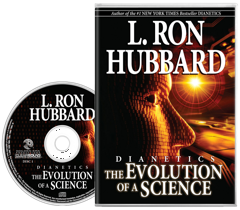Getting The Dianetics To Work
Table of ContentsThe Dianetics StatementsSome Known Details About Dianetics Some Known Factual Statements About Dianetics Dianetics Fundamentals Explained
I could not ever not intend to get anything that comes to mind for you- if it was or else, I wouldn't be resting right here with you, doing this. I not only can never have a trouble, or otherwise intend to listen to something that comes to mind for you, yet I'm completely anxious to understand every concept, every thought, every image or sensation that emerges or shows up for you- do not ever before think or else, and if for some factor you do, please just allow me recognize! Occasionally, you might have a thought, and photo, concept or case appear that does not appear to address the inquiry, or associate with it, however nevertheless, always do inform me regarding it, and as we proceed, the significance will arise for you.This is integral in the basis of handling, and the subject of this conversation: the fundamental duties of the counselor and the customer: The basic role of the therapist is, in contrast to "typical training", not to control, which means to implement and/or inhibit, yet to instead function from the basis of EMPOWERING THE CUSTOMER.

Some Known Details About Dianetics
John Mcmasters revealed this fundamental fact splendidly well in one of his lectures on Power handling, where he clarifies how he was asked what this "special flair" was that he had for giving such wonderful sessions; he had to think of that for a minute, and identified that it was what he wasn't doing, along with what he was doing: he wasn't examining, evaluating, computing, or as a matter of fact, producing any ideas, allow alone spoken expressions, after offering the command and while awaiting the computer to complete their response to their satisfaction; he was, just and just, existing with the PC, and completely interested.
The duty of the counselor, demonstrated; that was his "unique propensity". I have actually had my very own experience which instructed me this well, very early on in the video game. In 1982, having actually just recently finished my training and teaching fellowship on New Age Dianetics, I was running this on a PC, and there was a point in the session where (being a bit wet behind the ears not yet having several hours under my belt as a specialist auditor) the computer seemed to be "taking as well lengthy" to reveal anything vocally after I offered him a command.
This secret ended up being the most important payment that John ever before made to the topic of treatment or bookkeeping (Dianetics). In my simple point of view, it is the best payment that anyone has actually ever made to these subjectsthe application is completely non-judgemental, non-evaluative, and without any tip, advice or opinion.no preconditioned program for people, or 'degrees' that they have to do
In Idenics, the only source of info about a client is the private client. In Scientology we prided ourselves on not examining for individuals. Yet all that really indicated was that the auditor did not VERBALLY assess for the PC in session. The registrars and principles police officers assessed for the computer.
Indicators on Dianetics You Should Know

Any check this site out individual that had Dianetics ever seen John audit might not assist yet notice a special top quality in his bookkeeping."The client's standard role is to be there with the function of relocating the instructions of their spiritual goals, and to openly and totally express and experience whatever materializes for them in addressing the concerns and performing the guidelines in the handling.
This is something to procedure as required. Likewise, individuals often have previous experience and/or indoctrination in auditing/processing which, in some ways, and to some levels, in fact misdirects them right into attitudes, ideas and habits patterns that prevent the full realization of these duties, and so they will certainly have a tendency to prevent the expressing of what comes to mind, as in the instances provided above - Dianetics. * The first, and possibly leading instances of mis-indoctrination leading to much less than totally smooth and reliable sessions, can be located in specific elements of the training regimens, or "TR's":"TR's" are typically a person's very first, or a minimum of early, experience in Scientology, and while I will certainly go on to clarify what I view as the imperfections in concept and technique, nevertheless, often tend to be considerably restorative, done as they are provided (Hubbard urges that "TR's are not refining, they are educating", however factually, they are both processing AND training)
There is no "failing", and no denial of the reality Continue of this being handling. The focus, as it needs to be, is on experiencing the other person's visibility.
What Does Dianetics Do?

Comments on “Things about Dianetics”